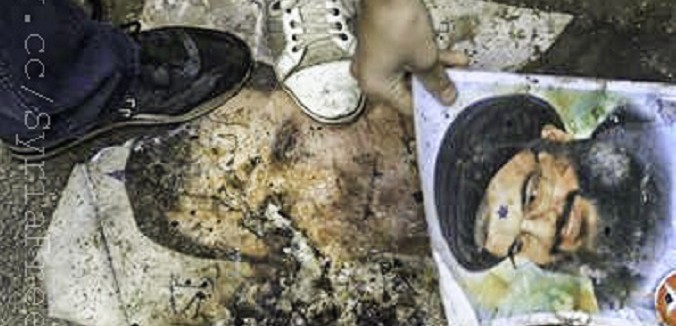Gulf states are again slamming Hezbollah over the Iran-backed terror group’s role in bolstering the regime of Syrian ruler Bashar al-Assad:
In a meeting held in Manama over the weekend, ministers said Hezbollah’s continued involvement in Syria hindered holding another conference to restore peace.
The attendees called for putting an end to the interference of Hezbollah’s “militia” in Syria “under the banner of the Iranian Revolutionary Guard.”
Hezbollah head Hassan Nasrallah this week shrugged off such criticism, while Iranian media eulogized a Hezbollah operative who died fighting in Syria:
Ahlul Bayt News Agency reported the death of Lebanese Hezbollah operative Ali Abbas Yassin, who reportedly died defending the Seyyeda Zeynab Shi’a shrine in Syria. The article reads in part, “[R]est his soul who truly loved [Supreme Leader] Seyyed Ali Khamenei, [who in his] statements recognized [Khamenei] as the symbol of the [12th Shi’a Imam] Mahdi.”
Hezbollah is structured hierarchically, and is controlled directly by the Supreme Leader. Nasrallah has been explicit regarding the central role that obedience to velayat-e faqih – the Guardianship of the Jurist, which establishes Khamenei’s authority – plays in the group’s core ideology. According to a monograph penned by analysts at the U.S. Army’s School of Advanced Military Studies in 2011:
Hezbollah devoted entire sections of its 1985 Open Letter to swearing allegiance to Ayatollah Khomeini, castigating moderate Arab regimes, and identifying America, NATO, and Israel as its primary enemies.
Lebanese officials have blasted Nasrallah and his group for dragging Lebanon into war “at Iran’s behest.” Hezbollah’s statements of loyalty to Khamenei, coupled with the Iranian media boasts linking Hezbollah fighters to “love” of Khamenei, cast doubt on the analysis of foreign policy observers, who for years had insisted that Hezbollah was an indigenous Lebanese organization pursuing Lebanese interests independently of Tehran.
[Photo: FreedomHouse2 / Flickr]




